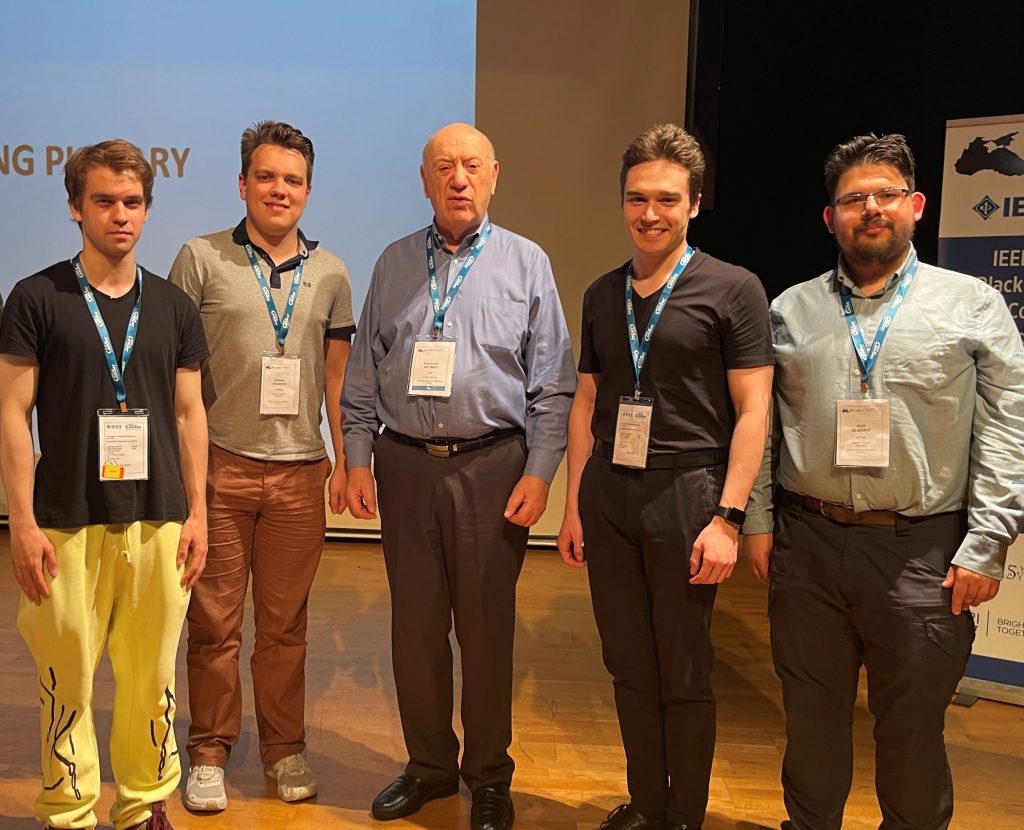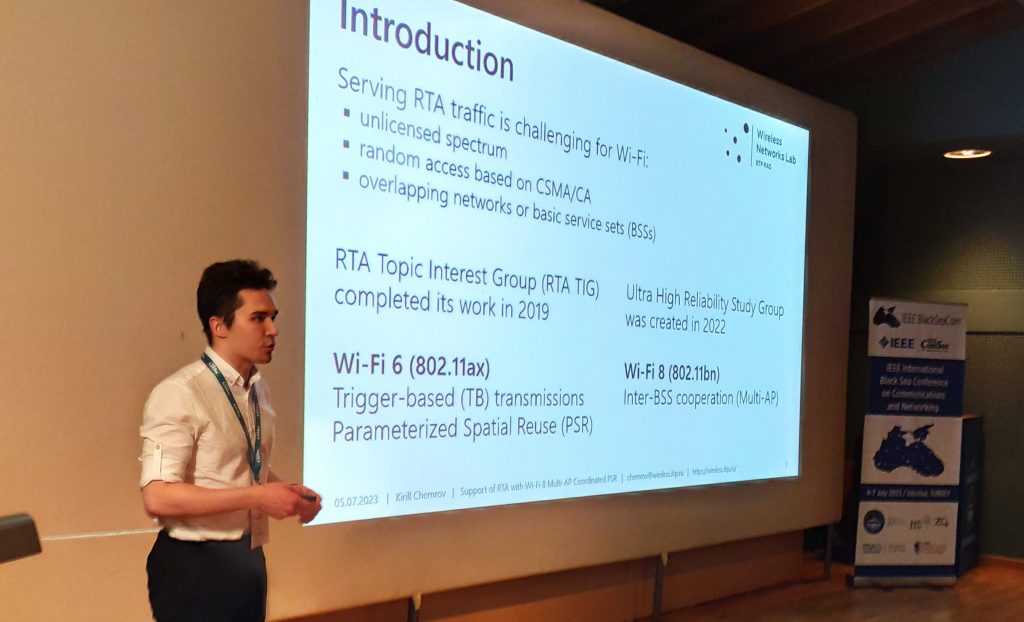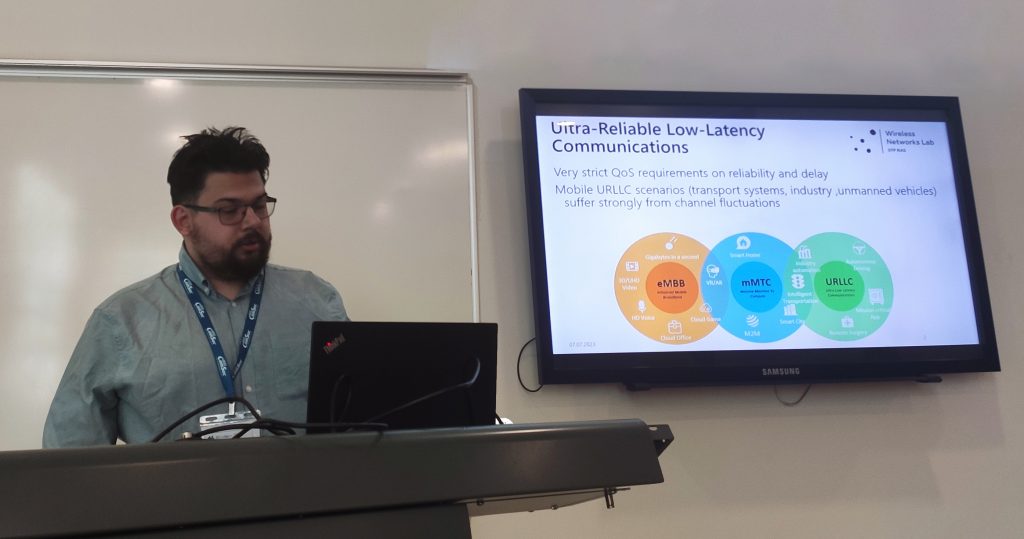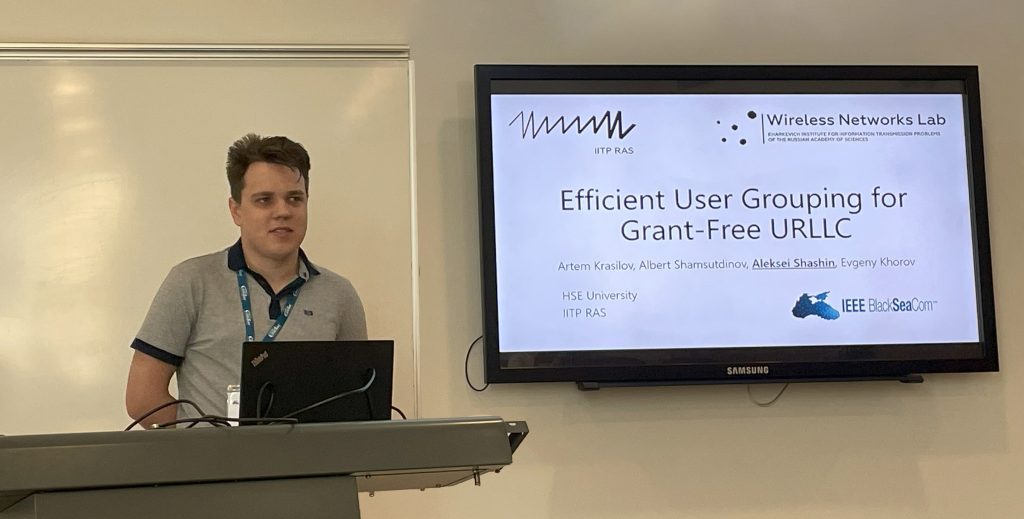WNL students present papers at IEEE BlackSeaCom 2023 and all win Student Travel Grants
In July 2023, Wireless Networks Lab members participated in the IEEE BlackSeaCom 2023 conference with four papers. The conference took place in Istanbul, Turkey. WNL students Kirill Chemrov, Anton Kurapov, Kirill Glinskiy and Aleksei Shashin presented their papers at the conference and all four have been awarded Student Travel Grants of IEEE Communication Society. The research has been supported by the Russian Science Foundation (grants №21-79-10158 & №21-19-00846).


The paper “Support of Real-Time Applications in Wi-Fi 8 with Multi-AP Coordinated Parameterized Spatial Reuse“ by Kirill Chemrov, Dmitry Bankov, Evgeny Khorov and Andrey Lyakhov studies a challenging problem of serving traffic of real-time applications along with delay-insensitive traffic in overlapping Wi-Fi 8 networks. The authors introduce a scheduling approach based on inter-network coordination to improve spatial reuse efficiency in terms of reducing delays for urgent traffic without deteriorating of throughput for stations with regular traffic.

The paper “CloudETC: a Privacy-Preserving Encrypted Traffic Classification Platform for QoS in Wi-Fi“ by Anton Kurapov, Danil Shamsimukhametov, Mikhail Liubogoshchev and Evgeny Khorov presents a demo of an easily implementable approach for TLS-encrypted traffic classification in Wi-Fi networks which can be used for Quality of Service (QoS) provisioning. This paper considers the Traffic-Classification-as-a-Service concept. Its idea is to send several first packets of the flows to a cloud server that classifies them and suggests an appropriate QoS policy to the access point. Notably, this approach preserves privacy by sending only the first packets that do not contain users’ payload. The demo confirms that this concept may double the bitrate for YouTube traffic in a highly loaded network.

In the research paper “Performance of ML-based Channel Prediction Algorithms for Ultra-Reliable Low-Latency Communications: Channel Model Matters,” authored by Kirill Glinskiy, Artem Krasilov, Evgeny Khorov, and Aleksey Kureev, explores different channel prediction approaches in Massive Multiple-Input Multiple-Output (M-MIMO) 5G systems using machine learning. By taking advantage of cutting-edge channel models, the authors looked at the whole spectrum of channel evolution simulation methods, from simple to complex. They highlight that environmental changes, unrepresented in simpler channel models, can cause prediction model parameters to become outdated which impacts the model’s effectiveness. The severe effects of model aging are especially noticeable in URLLC scenarios. Moreover, they found the autoregressive linear models to outperform the complex neural network models in high-mobility scenarios, due to them adapting better to changing environments. The paper emphasizes the need for computationally effective and robust fine-tuning methods, enhancing prediction models’ performance.

The paper “Efficient User Grouping for Grant-Free URLLC“ by Artem Krasilov, Albert Shamsutdinov, Aleksei Shashin and Evgeny Khorov studies whether it is possible to increase the network capacity of a 5G network providing Ultra-Reliable Low-Latency Communications (URLLC) by dividing users into several groups and allocating separate resources to each group while using the Grant-Free channel access method. The results show that the proper user grouping can significantly increase the number of users with satisfied requirements on reliability and latency for URLLC traffic compared with sharing common resources.
The IEEE BlackSeaCom series of conferences are held in the countries surrounding the Black Sea and are dedicated to the challenges that exist in the areas of communications and networking.
